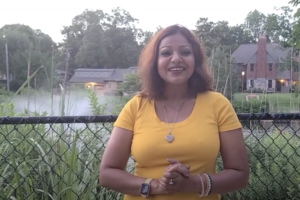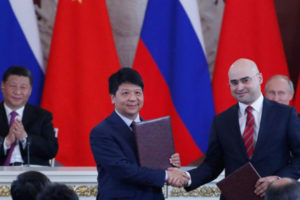Hundreds of police guarded the historic Red Fort in the heart of the Indian capital on Wednesday following violent clashes between farmers and authorities in which one person was killed and at least 80 injured.
Tens of thousands of farmers, protesting against reforms of the agriculture sector that they say benefit big private buyers at the expense of growers, have been camped on the outskirts of the city for two months to demand the reforms be scrapped.
A protest parade of tractors around the city’s fringes to coincide with Tuesday’s Republic Day celebrations turned to chaos when some farmers diverged from agreed routes, breaking through barricades and clashing with police, who used tear gas and batons to try to restrain them.
Some farmers carrying ceremonial swords reached as far as the Red Fort, where Prime Minister Narendra Modi gives an annual speech, where they scaled outer walls and hoisted flags.
By Tuesday evening police, had removed protesters from the fort complex but a heavy security presence remained on Wednesday.
Agriculture employs about half of India’s population of 1.3 billion, and unrest among an estimated 150 million landowning farmers is one of the biggest tests Modi has faced since coming to power in 2014.
While the protests are beginning to undermine support for Modi in the countryside, he retains a solid majority in parliament and his government has shown no sign of bending to farmers’ demands.
The government says agriculture reform will open up new opportunities for farmers.
Police said they had registered 22 cases against protesters including “rioting, damage to public property and assault on public servants with deadly weapons” in several locations.
Roads across the New Delhi remained closed while extra police, including paramilitary were at protest sites on the outskirts.
The government blocked the internet in some parts of the capital, and mobile speeds were low.
Tuesday’s violence was condemned by Samyukt Kisan Morcha, the group of farm unions organising the protests, who they have promised to press on with their sit-ins on the outskirts.
“They have to listen to us,” said protester Baljeet Singh.






















